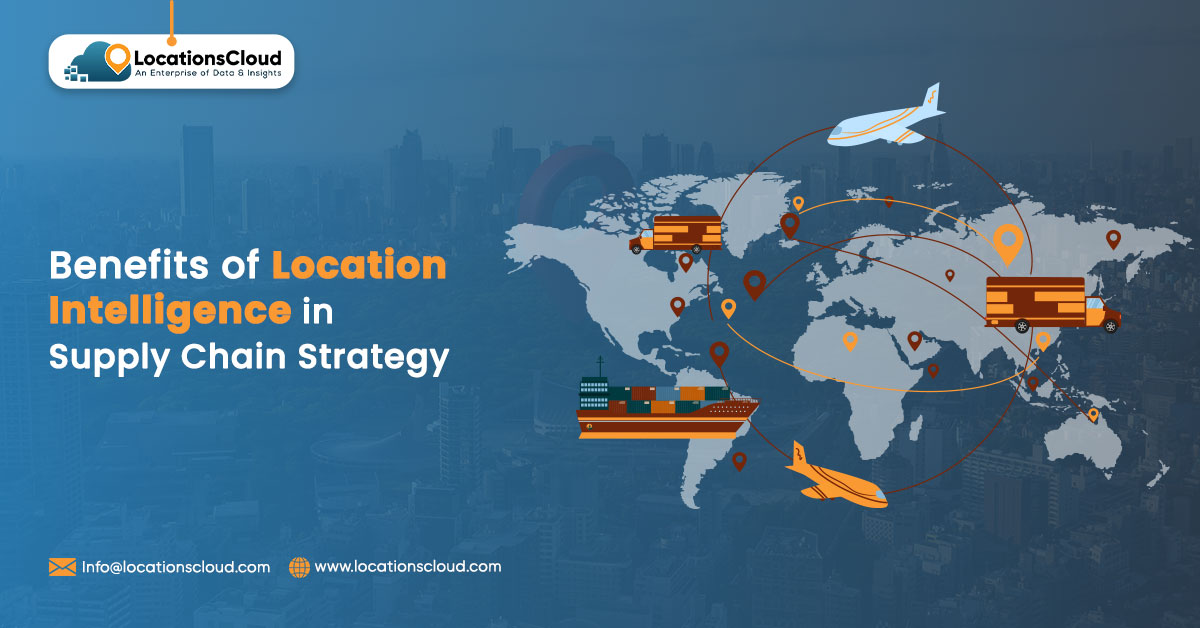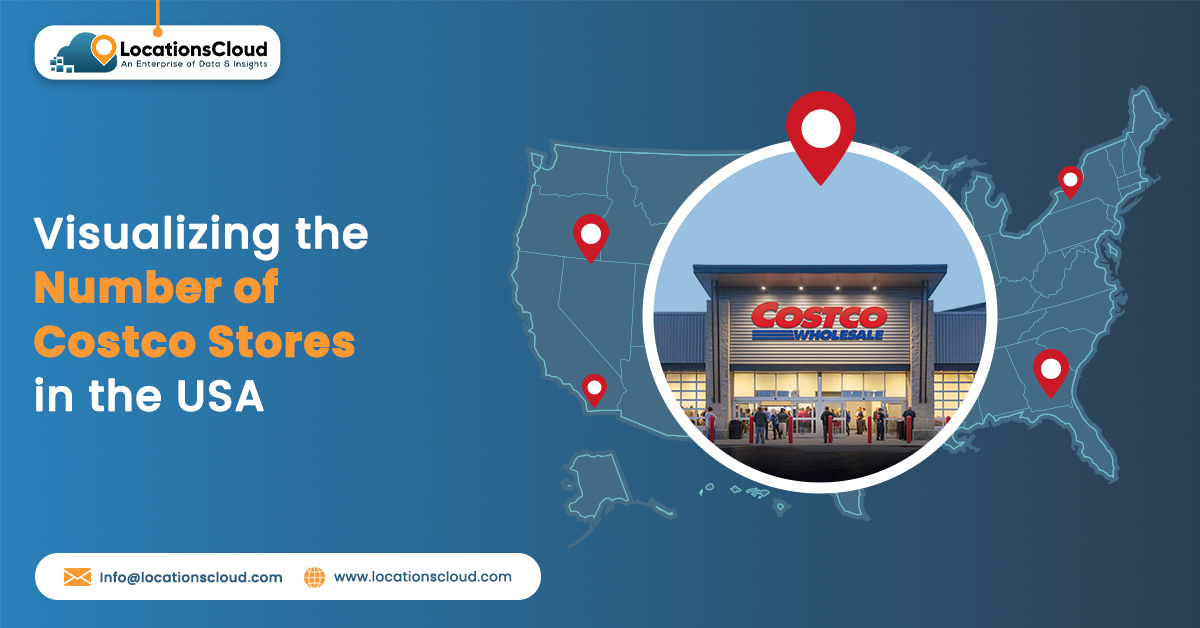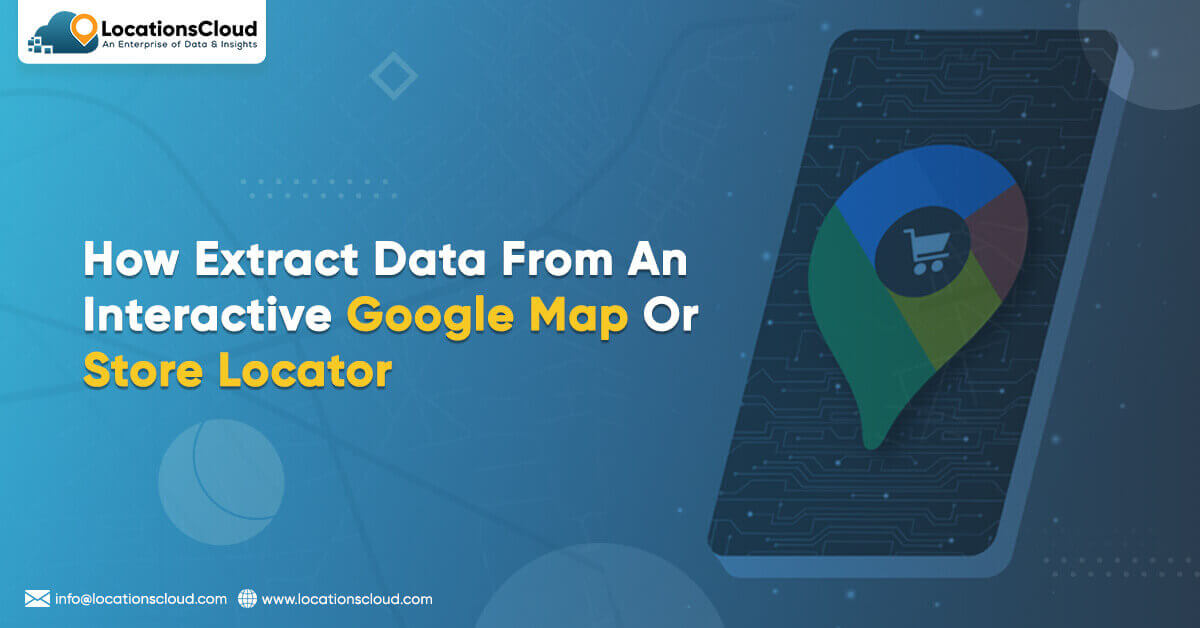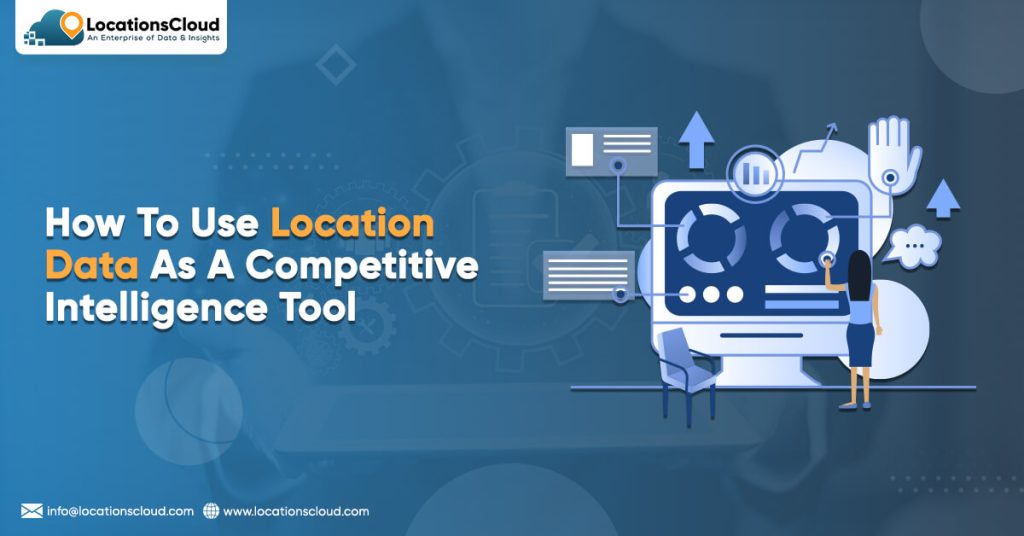
Running a successful business in a competitive world requires access to complete information. Many companies purchase data-driven strategies to gain an advantage, and location data has emerged as an effective strategy. By utilizing location data, you can gain valuable insights into customer and competitor behavior and market trends. This blog will discuss the importance of using location data for competitive intelligence tools.
What is the Role of Location Data?
To better understand the potential applications, it’s essential to recognize location intelligence’s role in modern business. You can use location data to make good choices based on spatial information. When you use geographic information systems (GIS) and business intelligence tools, you will get valuable insights that can provide a business an edge over its competitors.
Why Has Location Data Become More Crucial In Recent Years?
Because of high-tech changes and how people act, location data has become more critical in recent years. It is imperative to analyze the key factors, including their increasing significance.
Rising customer expectations
Customers today want personalized experiences, which often include services and deals based on the customer’s location. With the help of location data, businesses can meet these needs.
Competition
To be successful in business today, you need to know everything about your competitors. Knowing how your competitor runs their business and how well they do in certain areas can give you a significant advantage.
Data Excess
Smartphones and Internet of Things (IoT) devices produce location data, giving businesses a significant advantage. Companies can gain a competitive advantage by utilizing this data.
What Are The 3 Ways To Use Location Data For Competitive Intelligence?
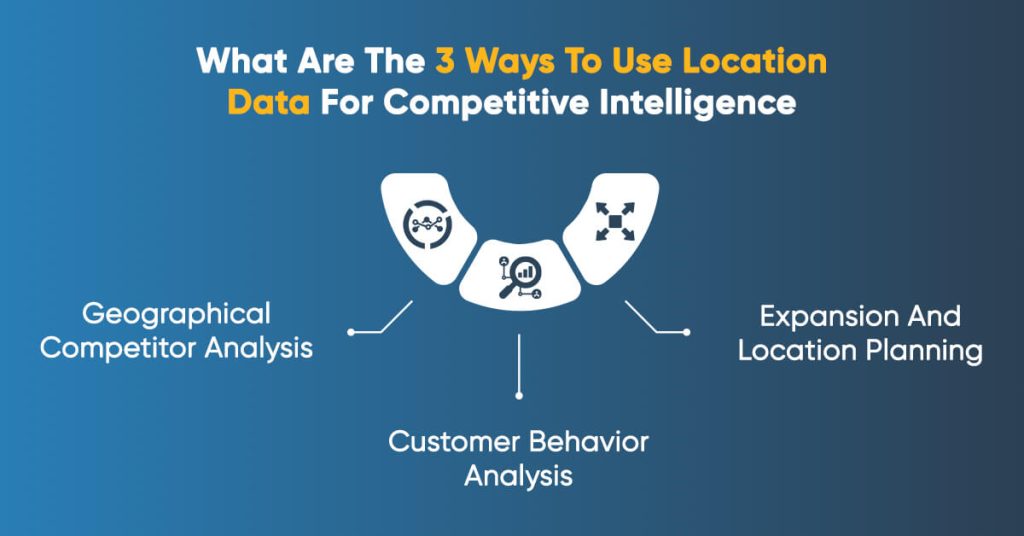
Find out the three best ways to use location data as an advantage for competitive intelligence tools.
Geographical Competitor Analysis
Competitor analysis is one of the most direct ways to use location data. Follow these steps to make sure it works well:
- Find Out Where Your Main Competitors Are: You can find it in business directories, mapping sites, and public directories.
- Analyze Foot Traffic: Use location data to determine how people move through your competitors’ stores. Are there times when there are many people there? They can learn important things about their ads or events from the location intelligence.
- Places to compare: Check how close your store is to similar stores. Are they closer to areas where customers gather or where people travel? Make changes to your goals.
Let’s say you own a chain of coffee shops to show how this works. When you look at location data, you might find something interesting, like a competitor’s store near a major commuter rail stop tends to have many customers during the morning rush hour. With this information, you can open a new branch of your business near a nearby train stop and attract some of those customers.
Customer Behavior Analysis
It’s essential to know how your people act. Location data can tell us a lot of helpful things:
- Track Customer Journeys: Use location data to map the customer journey. Find out where they hear about your business and how they move from online to in-store.
- Popular Areas: Find out where most customers like to hang out. Target the people you want to reach at certain places, shops, or events.
- Competing Attractions: Find out about companies and places of interest. Find out if they are similar to or different from what you give. The data will affect your business and marketing plans.
Let’s continue with the coffee shop example: When analyzing location data, you may discover that customers stop by your café after leaving a nearby bookstore. Utilize this information to coordinate cooperative marketing efforts and loyalty programs with the bookstore.
Expansion And Location Planning
Location data can be a game changer for companies looking to grow:
- Market Potential: Look at location data more closely to explore and find potential markets or promising places with much room to grow.
- Locations that work best: When picking a place for your store or office, think about how easy it is to get to, how clear it is, and how close it is to possible customers. This data can attract new business and ensure your success. Research and select a convenient location for both you and your customers.
- Risk Analysis: Check how dangerous it is to move to new places. Location data can tell you about crime rates, facilities’ stability, and rules in a particular area.
Imagine you own a chain of clothing stores. Have you considered expanding your chain of clothing stores? Doing so could transform your business. One way to identify potential new locations is by analyzing location data. Doing so may uncover areas with a growing population that need more clothing stores. This analysis could be an excellent chance for improvement.
What Are The Ways To Strengthen Your Competitive Edge Using Location Data?

Let’s discuss ways to use location data tactics to improve your competitive advantage for business intelligence.
Real-Time Decision-Making
Location data empowers real-time decision-making:
- Emergency Response: Location data can help companies determine if their workers and assets are safe after a natural disaster or other emergency.
- Supply Chain Optimisation: Keep track of how things and supplies are moving in real so you can make changes to improve delivery routes and inventory management.
Localized Marketing Strategies
Increase your chances of success by focusing your marketing on specific locations:
- Advertising: Use users’ real-time mobile location info to show more relevant ads. The method can help get the word out about events and deals.
- Community Engagement: Collaborate with local groups through event coordination, financial support, and partnership formation. Determine top customers by analyzing their geographic location.
Mobile App Improvement
Mobile apps have become necessary for many businesses in the era of widespread smartphone usage. In this regard, location information can play a crucial role.
- Geofencing: Use geofencing in your mobile app to send alerts or deals to users when they go to certain places. Geofencing can lead to more engagement and sales.
- Mobile location data services: Adding mobile location data services to your app is one way to improve it for users. For example, a restaurant app shows the user places close to where they are.
- Information about the user: If you have the user’s approval, you can use their mobile location data to learn more about how they use your app. You can use mobile location data to improve products and develop marketing plans.
Data Visualization
Think about using data image tools to make sense of location data:
- Heatmaps: By making heat maps, you can discover where your customers, competitors, and exciting places are.
- Interactive maps: If you have a website or app, you can use interactive maps to help people learn about places and information about them.
Predictive Analytics
Use location data to predict future trends and customer behavior:
- Forecast Demand: To predict demand in different places, look at facts from the past. The expected demand can help you keep track of your stock and decide how to use your resources.
- Analyze Trends: Using location data is one way to keep up with the latest food trends. By doing this, you can ensure that your menu is up-to-date and has what people want.
Privacy Concerns
Location data can be helpful, but protecting user privacy and following rules like GDPR and CCPA is essential. Before collecting any location data, it is vital to have clear instructions about how they will use data and to ask for the user’s permission.
Final Thoughts for Location Data As A Competitive Intelligence Tool
A business runs when you get repetitive customers. In today’s data-driven business world, it is important to use location data as a competitive Intelligence tool. You can find out what customers want, what the market is doing, and what your competitors plan. By looking at location data, companies can make better choices, improve their services, and gain a competitive edge.
Data needs to be collected and analyzed for innovation and growth to happen. Using location data as a critical part of your competitive strategy can help you gain market share, improve customer happiness, and achieve long-term success in a volatile and changing environment. At LocationsCloud, you can request a free quote to talk to one of our experts about our location data services.
